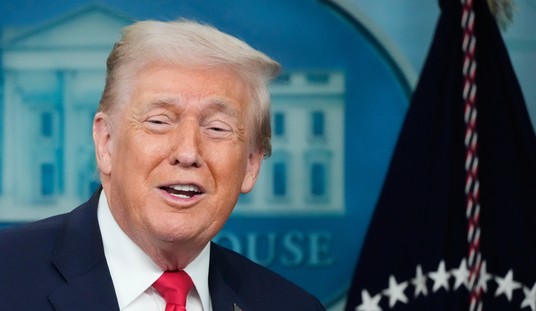I know what you’re thinking. “Who cares, AP? It’s his home state and their primary isn’t until the last week of April.” True. Pennsylvania might not matter much. But these numbers are important right now because they might — might — give us a window into how the race is going next door in Ohio, one of the key states voting on March 6, a.k.a. Super Tuesday.
Ohio could matter a lot.
The statewide poll of 500 Republicans showed Santorum’s support more than doubled from 14 percent six weeks ago to 30 percent, putting him in a statistical dead heat with former Massachusetts Gov. Mitt Romney, who increased his support to 29 percent from 18 percent. Santorum’s gain was former House Speaker Newt Gingrich’s loss, as his numbers here plunged from 35 percent to 13 percent…
James Lee, president of Susquehanna Polling and Research, which conducted the poll, said Santorum’s growing strength among Republicans suggests conservatives are tuning in to the race.
“Rick speaks their language. They believe he’s the real deal, but they seem to draw the line when it comes to moving on to the fall,” Lee said. “They don’t seem to think he’s electable. That’s the real conundrum he’s in: How does he persuade mainstream voters he’s the guy who can win in November?”
One way he could solve his electability problem is by beating Romney in Arizona and/or Michigan on February 28. If that happens, then suddenly Ohio might be in play. And if Ohio’s in play, then the odds of a brokered convention may increase rapidly. Here’s what Sean Trende had to say about it in making his point about the regional split among the candidates that I wrote about earlier:
Super Tuesday will likely be tougher for [Romney]. Four of the five largest states — Virginia, Tennessee, Oklahoma and Georgia — are Southern (or in Oklahoma’s case, culturally Southern). Romney will likely win Virginia by default, but he will probably fare poorly in the remaining three. If Gingrich can maintain his strength in the South, he will likely win them.
On the other hand, Romney will probably do well in Massachusetts, Idaho and Vermont. Santorum seems well-positioned to win North Dakota.
So the viability of a three-way split probably comes down to Ohio, which has a fair number of evangelicals, though not to the degree that Tennessee, Oklahoma and Georgia do. Santorum has some strengths he can draw on in the Buckeye State, as his blue-collar message could play well even among Republicans there. If he wins, it means that we probably do have a deeply divided GOP, with Gingrich taking the anti-Romney vote in the South, and Santorum taking the anti-Romney vote in the Midwest.
The last poll of Ohio, conducted by PPP, had Romney, Gingrich, and Santorum within four points of each other, but it was taken back on January 28-29, before Santorum’s clean sweep in the midwest on Tuesday. Needless to say, things have changed since then — enough so that PPP is tweeting tonight about its new national poll due out tomorrow that will show Santorum leading. Quote: “What’s really scary for Romney is the numbers if Newt dropped out…Newt, by staying in, is all the sudden Mitt’s BFF”. The wrinkle in Trende’s analysis, then, is that Gingrich might be fading so rapidly — witness his collapse in Pennsylvania cited above — that he can’t hold those southern states which we currently expect him to win. If that happens and Santorum starts winning in the south too, Romney’s in deep, deep trouble.
But let’s say Newt bounces back (there are two more debates before Super Tuesday) and holds the south, preserving the regional split and the dream of a brokered convention. Would that convention actually be a nightmare in practice? Jay Cost, the Weekly Standard’s election guru, e-mailed me in response to this post with a warning to be careful what I wish for:
A brokered convo would be an unmitigated disaster!
(a) Romney will go in with the most delegates, so he’d be the odds-on favorite to win. So, in that case we’ll still wind up with an Obama-clone, only he’ll be bloodied up all to hell. Terrific.
(b) What happens if we get some dark horse? They start running from scratch in late August? No advisors, no infrastructure, no fundraising? This kind of approach worked back in the 1870s when there was a permanent party org that basically ran the whole show, but there isn’t anymore, and worse the campaign finance laws really keep the party from pulling the weight for the candidate on the ground. And we don’t have something like organized labor on our side to pick up the slack, either.
What about no debate prep? Remember how bad Fred Thompson and Rick Perry did when they decided to jump in on a lark?
(c) It would be a mess to watch on television. How many ballots are we talking about? What happens if it goes past the lease on the convo center? How does that chaos look compared to the Donks orderly convo? Doesn’t it play right into O’s hands…”I’m the only grown-up in the room!” Remember: it’s been literally two generations since we’ve had a messy convo. The public won’t put it into context because the collective memory only has these carefully managed coronations. Our brokered convo plus Obama coronation = massive bounce for the One.
Good points all, but let me counter. One: A dark horse would have grave weaknesses, but depending upon who he/she is, I’m not sure the dark horse would be weaker than Romney. Like Cost says, even if Romney, Santorum, or Gingrich survives a brokered convention to emerge as nominee, they’ll be brutalized by the process. It may be that you need a clean slate with a new candidate at that point. Two: The absence of any organization for the dark horse is a concern, but it’s a concern that party leaders will begin to deal with long before the convention begins. If Super Tuesday comes and goes and the race is still deeply divided three ways, you’ll start seeing stories in the press about some sort of organization quietly being assembled to get to work for a dark-horse nominee just in case it comes to that. The RNC and conservative Super PACs will also start gearing up to go to war for the nominee in case he has no organization of his own. Don’t get me wrong: The organizational question mark is a serious concern, but we’re going to end up playing a weak hand no matter what in November. Serious concerns will abound until the polls open on election day.
But back to Ohio. Cost replied to my points about the convention with this:
I think for that to happen, Daniels or somebody would have to toss in during the primary period. He could still do it late. Imagine a scenario where he gets in before the CA filing deadline, wins the CA primary, starts building an organization, leads in the Gallup poll among GOPers, performs best against Obama, etc. That would be a scenario like what Bobby Kennedy planned to do in 1968.
Otherwise, you’d have a legitimacy problem as well. Romney could credibly argue that the “people” had “voted” for him.
I think the big test for all of this is the Ohio primary. If Romney can’t win that, Daniels could still get on the ballot in CA, NJ, NM, MT, UT and a few other places. I think the establishment GOPers are probably equally scared of Santorum as they are of Gingrich, in that they fear both of them would lose (correctly, IMO). So Ohio is for Romney v. Santorum what Florida was for Romney v. Gingrich — Romney has to close it out there or else the bigwigs are going to intervene.
Right. If he can’t seal the deal in one of the perennial key swing states on Super Tuesday, you’re likely to see chaos the day after. That’s why the new Pennsylvania poll maybe matters. And why Ohio definitely matters.
Update: Corrected a careless error above: Jay Cost used to be at RealClearPolitics, now he’s at the Weekly Standard. Sorry for the mix-up.







Join the conversation as a VIP Member